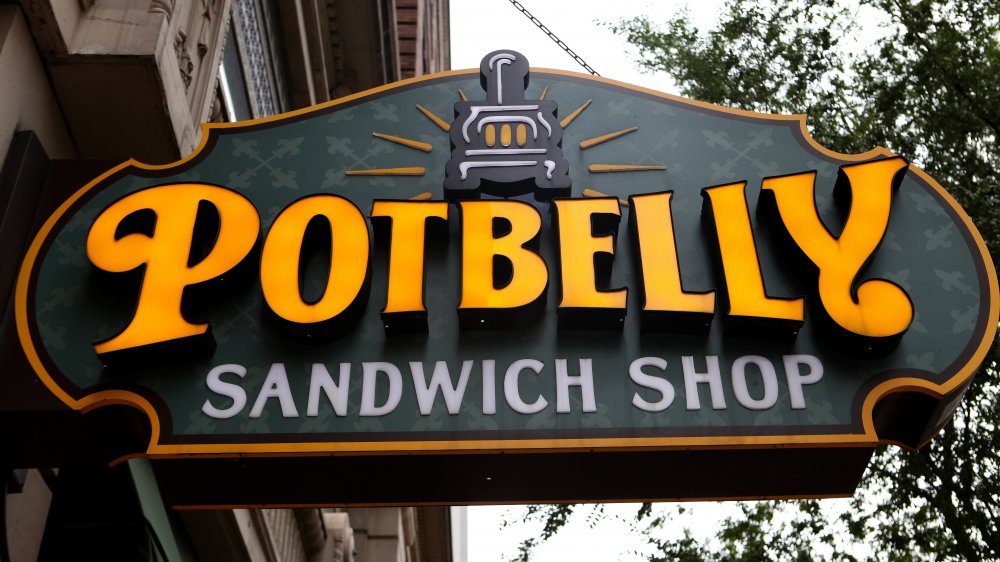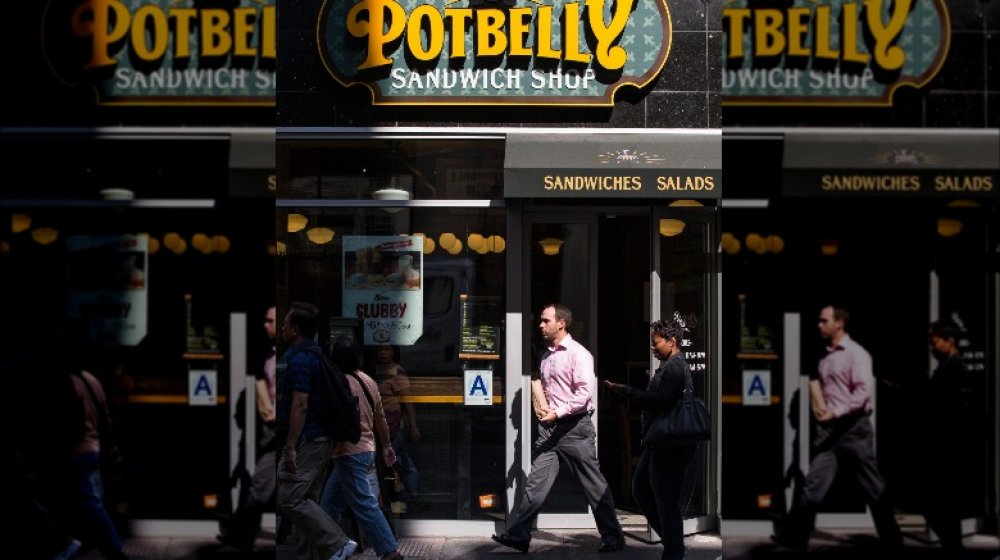Bad News For Potbelly Sandwich Shop Fans
When the Trump Administration launched its $350 billion Paycheck Protection Program to help small businesses, funds ran out fairly quickly, and research from Morgan Stanley eventually showed that at least $243.4 million of that fund had been given to publicly traded companies. One of the larger companies that had originally been given $10 million out of the PPP was Potbelly Sandwich Shop, which had a market cap of $71.2 million. After a huge public outcry, Potbelly followed in the footsteps of other large chains like Ruth's Chris Steak House and Shake Shack and returned the cash (via CNBC).
Now it seems Potbelly might have needed the money after all. A few weeks after they returned the bailout, Potbelly announced that it is considering closing 100 of its 430 shops because of low sales, and earlier this month, Potbelly said it has cut the amount of cash it is spending from $2 million a week to $500,000. It also said it is now talking to its landlords about permanent closures and the restructuring of its leases (via AdWeek). Savings also came from furloughing a third of its corporate employees and cutting the salaries for all its executives and corporate workers by 25 percent (via Restaurant Business). AdWeek further reports the chain did not pay rent in April and May.
Potbelly may need to declare bankruptcy in order to survive
While Potbelly's sales figures have begun to improve since the pandemic first shuttered businesses in March, Eat This, Not That! says the company may need to declare bankruptcy anyway, in order to terminate the leases for the shops that they want to close. The restaurant has over $200 million in lease agreements that they need to settle; as of May 31, AdWeek says Potbelly has just under $30 million in cash on hand; and they have a total liquidity of $44.7 million. The restaurant already had temporarily closed 36 shops when the pandemic struck, but Potbelly was hurt by shelter-in-place orders anyway.
If Potbelly seeks out bankruptcy protection, it won't be the first restaurant chain to have gotten hit by the pandemic. Garden Fresh Restaurants, which owns Souplantation and Sweet Tomatoes, filed for bankruptcy and permanently closed its 97 restaurants in mid-May. But the prognosis is worse for independently-run dining establishments: The National Restaurant Association has estimated that the industry would lose $225 billion through the closures, and that these would cost the jobs of between 5 to 7 million employees (via The New York Times).

